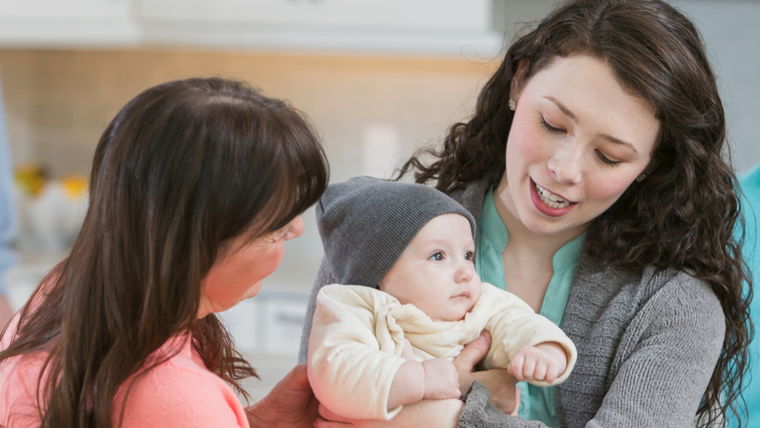Posted By: Amy Tubb
4th November 2021
3 minute read

The MMHA invited Dr Sally Payne, Professional Adviser for Children, Young People and Families at the Royal College of Occupational Therapists, and Debra Jeffery, Specialist Perinatal Community Occupational Therapist, to share their thoughts on the vital role of occupational therapy in supporting women’s perinatal mental health.
When you think about occupational therapy, who comes to mind? Maybe an older person needing equipment to be independent at home, or someone having difficulty taking care of themselves after major surgery. But did you know that occupational therapists support people with physical, learning, and mental health needs of all ages, including those not yet born?
The Royal College of Occupational Therapists (RCOT) includes a growing number of members working in perinatal mental health. In this blog, we describe the unique contribution of occupational therapy in supporting women who experience mental health problems before, during and after pregnancy.
When a woman experiences mental health problems during the perinatal period it can affect her self-esteem and sometimes impact her relationships with her family and baby. For example, she may struggle with:
Occupational therapists help by enabling women to carry out the activities (occupations) that are important to them, their babies, and their families.
Underpinning occupational therapy practice is the belief that taking part in the things we need, want or have to do is fundamental to enabling and maintaining our health and well-being. You’ll find occupational therapists supporting women experiencing perinatal mental health problems in community perinatal mental health teams, inpatient mother and baby units (MBUs) and in some third sector organisations.
Occupational therapists take a holistic approach, considering each woman’s strengths as well as her mental health, physical, learning, and cultural needs and choices. Occupational therapists start by developing an understanding of a woman’s:
Understanding factors that influence a woman’s sense of identity, including her beliefs and expectations about her role as a mother, partner, caregiver, and worker is also important.
Occupational therapy goals are developed collaboratively with each woman and, where appropriate, her partner/family to ensure they are relevant and meaningful. A woman’s goals might include being able to take care of her own self-care needs, spending time playing with her baby, or planning a daily routine that ensures a healthy balance of self-care and parenting activities.
Interventions are personalised and delivered individually or in groups. You might find an occupational therapist:
With a focus on practical interventions, occupational therapy can really make a difference in the lives of women and their infants. With occupational therapy women can:
We see the increase in specialist occupational therapy posts in perinatal mental health services across the UK as good news for our profession. More importantly, it is good news for women and their families who can now benefit from the unique skills and expertise that occupational therapists provide.
Watch this short film of Michelle talking about her role as a perinatal occupational therapist:
See also: Kate discussing her role or visit RCOT’s YouTube channel for more video content.
Online training programme developed by RCOT in collaboration with Health Education England. This is available to NHS organisations and anyone with an OpenAthens Account.
To learn more about occupational therapy, visit RCOT’s website or follow us on Facebook, Twitter and Instagram.